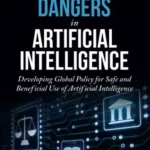Introduction
As we usher in the 21st century, the integration of Artificial Intelligence (AI) into our society and the job market has become increasingly significant. Many industries, from tech companies to healthcare providers, are experiencing a shift in their workforce dynamics as AI and machine learning techniques become more advanced.
With the rise of AI, several new job roles have emerged that were once non-existent. Notably, AI requires a unique blend of skills, including a profound understanding of programming languages like Python, Java, and R, which are pivotal in developing and implementing AI algorithms.
Prompt engineers, software engineers, and robotics engineers are among the positions that have experienced significant growth in demand. Prompt engineers, specifically, have been at the forefront, playing a critical role in refining and enhancing AI language models, like GPT-4, to facilitate more accurate and human-like interactions.
In tech companies, software engineers are sought after to devise and integrate AI-powered solutions that can automate tasks, enhance productivity, and make sense of vast quantities of data. Simultaneously, robotics engineers are essential in industries such as manufacturing, logistics, and healthcare, where automation can perform repetitive tasks more efficiently than human workers, while also reducing the risk of errors. This AI revolution is not about replacing human labor but rather augmenting it, working in synergy with human intelligence to drive innovation and efficiency to new heights.
Table of contents
The Growing Demand for AI Ethics Officers
As the AI landscape continues to expand and influence various sectors of the economy, the necessity for establishing ethical boundaries has become increasingly apparent. This urgency has given rise to a novel profession known as AI Ethics Officers. Their primary role is to ensure that AI development and deployment align with societal norms and ethical standards, fostering a responsible and fair use of technology. They navigate complex issues such as worker displacement by AI, the unintended consequences of AI decisions, and ethical dilemmas posed by generative AI and reinforcement learning techniques.
These professionals require a comprehensive understanding of AI technology, including advanced concepts such as generative AI, reinforcement learning, and knowledge representation. For example, generative AI, which uses machine learning to produce new content, might inadvertently generate harmful or misleading information. In reinforcement learning, an AI agent learns to make decisions based on rewards and punishments, but without proper guidance, it could adopt strategies that are efficient yet ethically dubious. AI Ethics Officers need to understand these technologies to predict and mitigate potential ethical pitfalls effectively.
AI Ethics Officers also need excellent communication skills to articulate complex technical concepts to non-technical stakeholders and to engage in meaningful dialogues about the societal impacts of AI. They need to be capable of marrying the logic and objectivity of machines with the nuance and variability of human judgment. As the intersection between AI technology and human values becomes increasingly fraught with potential for both remarkable progress and profound challenges, the role of AI Ethics Officers will be critical in guiding us through this new landscape. Their job is not only to prevent harm but also to help society understand the full potential of AI, harnessing its power in a way that is transparent, fair, and beneficial to all.
Also Read: How To Start A Career In AI?
Machine Learning Engineers: Intelligent Automation
In the burgeoning field of Artificial Intelligence, machine learning engineers sit at the epicenter, leveraging sophisticated algorithms and computational models to create systems capable of learning from and making decisions based on data. They play a pivotal practical role, bridging the gap between theoretical AI models and real-world applications. Machine learning engineers are crucial to a multitude of sectors, from healthcare to e-commerce, enabling smarter systems that drive efficiency and innovation.
One sector where the work of machine learning engineers is particularly visible is the automotive industry, specifically in the development of self-driving cars. Here, engineers employ techniques such as deep learning – a subset of machine learning that mimics the neural networks of the human brain – to teach vehicles how to navigate roads safely and efficiently, recognize traffic signs, and react to dynamic driving conditions. Their analytical skills are vital in processing vast amounts of real-time data, ensuring the models they build are accurate and reliable.
Beyond autonomous vehicles, machine learning engineers contribute to economic growth and improved customer service in many businesses. Their skills allow companies to develop AI chatbots that handle customer queries efficiently, predictive models that optimize inventory management, and recommendation systems that personalize user experiences. In essence, machine learning engineers are at the frontiers of intelligent automation, using their expertise to create AI systems that not only enhance economic output but also transform the way we live, work, and interact with the world.
Data Labeling Professionals: The Invisible Job in AI
Data labeling professionals, although often overlooked, play a crucial practical role in the AI ecosystem. They carry out the meticulous task of annotating and classifying data, essentially providing the ‘learning’ material for machine learning algorithms. This job requires technical skills, programming skills, and a keen eye for detail. It is their labor that makes it possible for AI to understand and interpret real-world phenomena, from the content of a text document to the nuances of facial recognition systems.
Their role is especially vital in supervised learning, where machine learning models learn from labeled examples. For example, facial recognition systems rely heavily on accurately labeled datasets to correctly identify features and make precise identifications. While this work can be time-consuming and requires specialized additional skills such as understanding context, it is crucial for the successful training and performance of AI models. With the increasing reliance on machine learning across industries, the demand for data labeling professionals is expected to see substantial job growth. As we move forward in the age of AI, their role in shaping effective and efficient machine learning models will only become more significant.
Autonomous Vehicle Engineers: Pioneers in AI Transportation
Autonomous vehicle engineers are currently one of the most sought-after jobs in AI industry, pushing the boundaries of artificial intelligence technology to transform the way we travel. These professionals typically have a strong tech background, often with expertise in areas like computer science, robotics, and electrical engineering. They are responsible for developing, testing, and refining the advanced AI systems that allow vehicles to navigate autonomously, requiring extensive knowledge of artificial intelligence tools, sensors, actuators, and control systems.
One of the fundamental motivations driving the development of autonomous vehicles is the potential to reduce our carbon footprint. Autonomous vehicles can optimize driving patterns for fuel efficiency and could potentially facilitate the widespread adoption of shared transport, reducing the number of cars on the road. Autonomous vehicle engineers are therefore not only shaping the future of transportation but also contributing to more sustainable living. The role requires not only technical expertise but also a strong understanding of the broader societal and environmental implications of their work, making it a truly multidisciplinary field in the era of AI.
AI Product Managers: Bridging the Gap Between Tech and Business
AI Product Managers stand at the unique intersection of technology and business, playing a crucial role in the tech industry. They utilize actual skills in both areas, leveraging their understanding of artificial intelligence and machine learning technologies, alongside their knowledge of market trends and customer needs, to oversee the successful development and deployment of AI products. Their work impacts millions of people, from improving customer satisfaction through intelligent service recommendations to enabling more efficient business operations with advanced analytics tools.
One of their primary responsibilities is working with business intelligence developers and data scientists to translate business objectives into technical requirements. They also need to understand and anticipate human behaviors to ensure that the AI products they manage meet the needs of the average person. For example, they may oversee the deployment of generative AI tools that can create personalized marketing content, or predictive models that anticipate customer needs before they arise. As AI becomes increasingly integrated into our daily lives, the role of AI Product Managers will continue to grow in importance, ensuring that technology serves people effectively, responsibly, and ethically.
AI Infrastructure Specialists: Groundwork for Machine Learning
AI Infrastructure Specialists are the foundation builders in the realm of Artificial Intelligence, providing the necessary groundwork for machine learning operations across a range of companies. They are tasked with developing and maintaining the infrastructure that supports the training, testing, and deployment of machine learning models. These professionals often possess a deep understanding of system architecture, databases, data pipelines, and computational resources. They are adept in dealing with vast datasets and complex computing tasks, including those involving sophisticated graphical models.
These specialists require not just a strong technical background but also a creative hacker spirit. As they are often faced with unique challenges related to data management, computing capacity, and system optimization, they need to devise innovative solutions that can improve the efficiency and effectiveness of AI systems. For example, they might need to design an infrastructure that can process and store petabytes of data for a machine learning model or develop a system that can efficiently execute a graphical model that involves complex interdependencies. With AI applications becoming more advanced and widespread, the demand for AI Infrastructure Specialists will continue to grow, underscoring their importance in the success of AI implementation in different industries.
Conversational Designers: Crafting the Voice of AI
Conversational Designers, also known as conversational intelligence designers, are playing an increasingly vital role in the AI industry. They craft the interactions between humans and AI, using their skills to create a natural, engaging, and user-friendly dialogue flow. This job demands an understanding of natural language processing (NLP), one of the most dynamic fields in AI, as featured frequently in tech news. Conversational designers are responsible for developing conversational interfaces for chatbots, virtual assistants, and other AI-powered services, which requires a blend of technical and creative skills.
Alongside an understanding of NLP and generative AI, which allows AI to produce human-like text, Conversational Designers must also possess excellent writing skills. They need to create scripts that feel natural and engaging to users, whether the AI is helping with customer service or providing personalized recommendations. They also need active listening skills to understand user needs and iterate on designs based on user feedback. As AI becomes more integrated into our daily lives, Conversational Designers are the ones who will ensure that interactions with AI are as intuitive and productive as conversations with another human being.
AI Legal Advisors: Navigating the Complexities of AI Laws and Regulations
With the rapid advancement and adoption of AI technologies, a new category of professionals has gained prominence: AI Legal Advisors. These experts navigate the intricacies of laws and regulations surrounding AI, providing critical counsel to tech companies, government agencies, and organizations implementing AI solutions. Their work helps prevent violations of privacy and data protection laws, tackle issues of intellectual property related to AI, and manage potential legal disputes. As such, AI Legal Advisors are becoming an indispensable part of the dynamic landscape of jobs in AI.
AI Legal Advisors must possess an in-depth understanding of both legal principles and AI technologies. They need to stay updated with the latest advancements in AI, understanding the ethical implications and potential misuse of AI tools. This knowledge enables them to draft legal agreements, advise on AI policy, and ensure compliance with regulations. Given the rapidly evolving nature of AI, the laws and regulations that govern it are continually changing, presenting new challenges and opportunities for AI Legal Advisors. Their role is not only reactive, addressing legal issues as they arise, but also proactive, anticipating potential legal and ethical issues and offering preventive measures. As we continue to integrate AI into our lives, these legal professionals will play a critical role in ensuring that the growth of AI respects the law and safeguards our rights.
Also Read: AI Lawyers: Will artificial intelligence ensure justice for all?
AI Healthcare Professionals: The Intersection of Medicine and Machine Learning
As the worlds of healthcare and artificial intelligence converge, a new breed of professionals, known as AI Healthcare Professionals, is emerging. These individuals operate at the intersection of clinical practice and machine learning, utilizing advanced coding skills and clinical expertise to transform healthcare services. Their work involves developing and deploying AI tools that can analyze complex medical data, diagnose diseases, predict patient outcomes, and personalize treatment plans.
AI Healthcare Professionals play a pivotal role in advancing medical research and improving patient care. For example, they might create a machine learning model that can analyze radiology images to detect early signs of cancer, or develop predictive models that can identify patients at risk of chronic diseases. With their unique combination of clinical and technical skills, these professionals are ideally positioned to bridge the gap between AI technology and healthcare practitioners. They ensure that AI tools are not just technically sound, but also clinically relevant and ethically sound. As AI continues to permeate the healthcare industry, the role of AI Healthcare Professionals will be crucial in ensuring that technology is harnessed effectively to enhance patient care and outcomes.
Also Read: Artificial Intelligence in Healthcare.
AI-based Cybersecurity Roles: Safeguarding Digital Assets in the Age of AI
As our reliance on digital technology continues to grow, so does the importance of cybersecurity. The advent of AI has introduced a new line of defense in this domain, creating a surge in AI-based cybersecurity roles. These professionals use machine learning algorithms and predictive analytics to anticipate and counteract potential threats, safeguarding digital assets in the age of AI. Their role is critical in detecting anomalies, predicting potential breaches, and ensuring prompt and effective responses to cyberattacks.
AI-based cybersecurity professionals use advanced AI tools to enhance security protocols and develop more robust and intelligent defense systems. For example, they might employ machine learning algorithms to analyze patterns and detect unusual activity that could signify a cyber threat, or use natural language processing to identify phishing attempts in emails. These roles require a strong technical foundation in both AI and cybersecurity principles, alongside a strategic mindset to anticipate potential vulnerabilities. In an era where cyber threats are continually evolving and becoming more sophisticated, AI-based cybersecurity roles are crucial in maintaining the integrity and safety of digital environments.
Prompt Engineering: Shaping the Content Generation of AI Models
Prompt engineering is a growing field within the artificial intelligence (AI) landscape, contributing to the expanding array of jobs in AI. It involves devising and refining prompts that guide AI language models like ChatGPT to generate appropriate and useful content. These engineers shape how an AI model responds to input, using their deep understanding of language, AI, and user needs to guide the AI’s content generation. Their work is critical in applications ranging from AI chatbots to automated content creation tools.
Prompt engineers not only require strong technical skills, including knowledge of AI and natural language processing, but also creativity and an understanding of human language use. They must anticipate the wide range of possible user inputs and ensure that the AI’s responses are accurate, relevant, and contextually appropriate. As the use of AI language models becomes increasingly widespread, prompt engineering is gaining recognition as a crucial field, essential for improving the interaction between humans and AI. The role of prompt engineers is not just to instruct AI but to shape how it communicates, making it a more effective tool for users across numerous applications.
Also Read: Is robotics computer science or engineering?
CoBots Maintenance: Working alongside Robots
The advent of collaborative robots or “CoBots” has given rise to a new profession within the realm of jobs in AI – CoBots Maintenance Technicians. These professionals are responsible for the regular maintenance, troubleshooting, and optimization of CoBots, which are designed to work alongside human workers in various industries. CoBots Maintenance Technicians ensure that these robots operate efficiently and safely, and their role is critical to the smooth running of operations in factories, warehouses, and other settings where CoBots are employed.
In addition to their technical know-how, CoBots Maintenance Technicians must have a deep understanding of AI, IoT and robotics, enabling them to diagnose and resolve issues that may arise in the robot’s function or programming. They might be tasked with adjusting a CoBot’s programming to improve its efficiency, repairing mechanical issues, or updating its software to incorporate the latest AI advancements. Their role underscores the growing interdependence of human and robotic labor in today’s workplaces. As CoBots continue to become more commonplace, the demand for skilled CoBots Maintenance Technicians will continue to grow, highlighting the expanding array of jobs available in the AI sector.
Also Read: Cobots: Types of Collaborative Robots and The Future of Teamwork
Conclusion: The Future of Jobs in AI Landscape
The landscape of jobs in AI is not static but continuously evolving, reshaping the tech industry and creating numerous opportunities for individuals with various skills and backgrounds. AI is no longer a field exclusive to individuals with actual computer science degrees or advanced technical qualifications. While programming skills and advanced degrees are still highly valuable, there is an increasing demand for a variety of roles that combine technical expertise with other skill sets. For example, AI Product Managers, Conversational Designers, AI Legal Advisors, and AI Healthcare Professionals need to bridge the gap between technology and their respective fields.
The growing AI job market indicates a future where the advanced driver-assistance system features in cars are designed by Autonomous Vehicle Engineers, our digital assets are safeguarded by AI-based Cybersecurity Specialists, and CoBots Maintenance Technicians ensure the smooth collaboration of robots and humans in the workplace. These jobs in AI, along with many others not mentioned, are becoming integral parts of our society. As AI continues to address people’s needs and solve complex problems, the demand for professionals in artificial intelligence jobs is set to keep growing. Whether you come from a tech background or are considering a career change into AI, there has never been a better time to dive into this vibrant and dynamic field.
References
Burkov, Andriy. The Hundred-Page Machine Learning Book. 2019.
West, Darrell M. The Future of Work: Robots, AI, and Automation. Brookings Institution Press, 2018.












